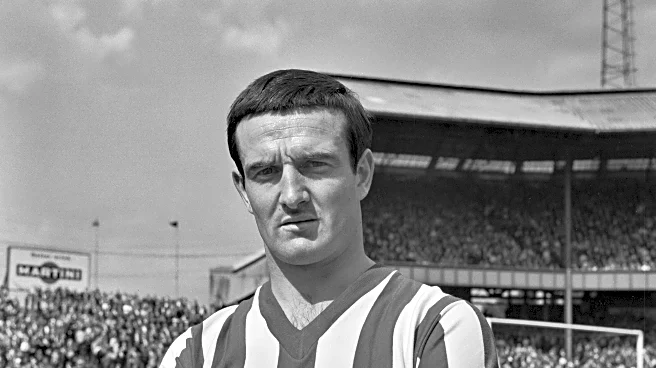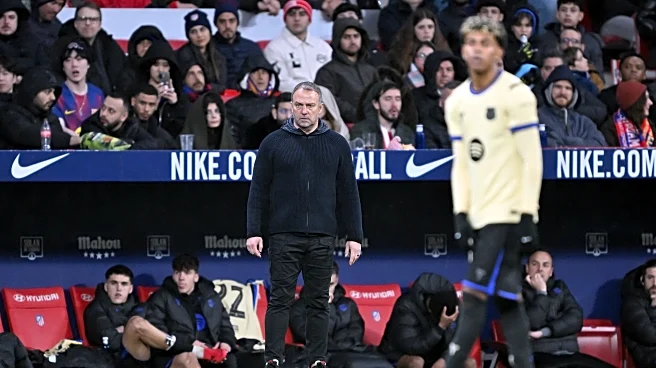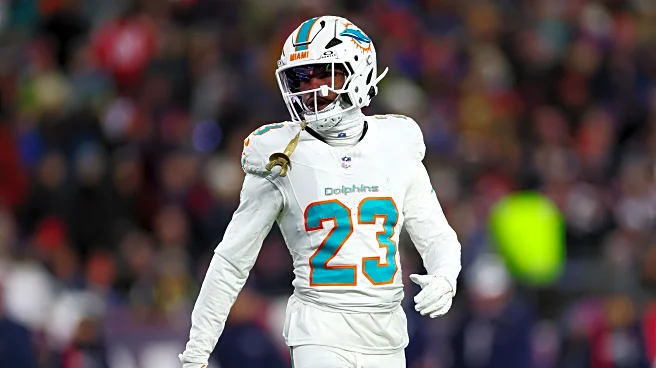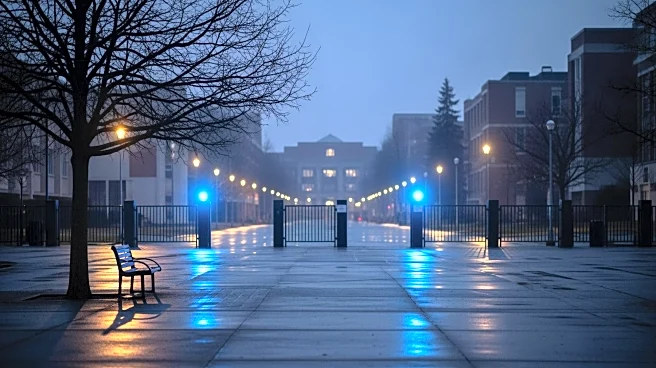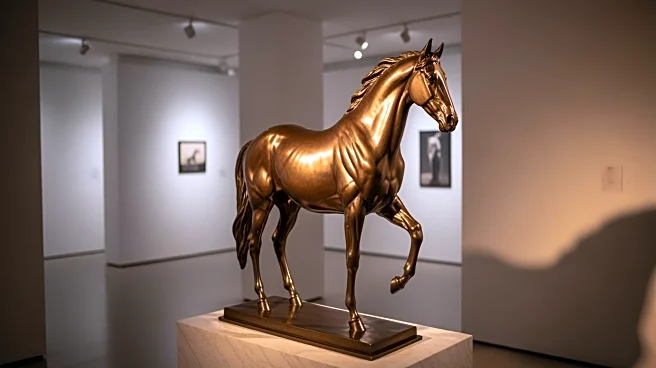This campaign had not got off to the best of starts as the World Cup feel-good factor evaporated quickly for Sunderland fans. With just two wins and seven defeats in the first twelve games, we found ourselves
in twentieth position in the top tier; it was looking like it was going to be another hard season.
Then there were three wins on the trot, and for me the added bonus of getting to see all of these victories. Two home games against Stoke and a thumping 4-1 win against Sheffield United sandwiched a 3-0 victory at St James’ Park – my very first derby game. Six points in less than a fortnight and some cracking goals and performances to back this up; I thought my head was going to spin round three times and come flying off as a young fan in the first flush of a lifetime addiction. It was just about all I could think or talk about at the time!
The victories had moved us up to the lofty height of fifteenth in the table, and I was convinced we were on the march to the title!
Next up were the “Burnley aristocrats”. I had heard an adult describe them as such and spent the week telling my pals we were playing the “Aristocats” before Dad put me right.

Future Sunderland boss and Ashington lad Jimmy Adamson was the first-team coach, who had worked in tandem with manager Harry Potts, who was from Hetton-le-Hole. They had led Burnley to third place in the First Division the previous season, and they were looking to build on this and looking like they could be title challengers as well as playing in Europe in this 1966/67 season.
As usual, the Clarets had a fair sprinkling of North-East-born players in their team. Hetton-le-Hole’s Ralph Coates was earning rave reviews, John Angus was an Amble lad and nobody’s fool at full-back, and half-back Brian O’Neil, a solid and consistent defender, hailed from Bedlington. Dave Merrington, a future Sunderland coach, was a Newcastle lad who would feature on the bench in this game. Future Sunderland player Gordon Harris and flying winger Willie Morgan would likely provide some ammunition for Northern Irish international centre-forward Willie Irvine, a player who always seemed to play well against us and finished the previous campaign as the division’s top scorer on twenty-nine goals.
Sunderland boss Ian McColl had not been enamoured with the performance and defeat at Nottingham Forest in our previous game and opted for changes.
Martin Harvey (who was still on the transfer list) was deemed unfortunate by many to lose his place as Charlie Hurley was brought back in from injury at centre-half. George Kinnell was moved to left-half, and Dave Elliott was dropped for youngster Colin Todd to return to the first team. Up front, Gary Moore lost out to John O’Hare, who many felt had the makings of a good playing relationship with fellow Scot Neil Martin, who came into this game on eleven goals in fifteen league games.

I joined a crowd in excess of thirty thousand as I took my place in the Boys’ Enclosure of the Roker End, full of anticipation and expectation of our next step to the title!
The game started with a flurry of Sunderland pressure. Colin Todd played a peach of a pass to John O’Hare, who flicked the ball nonchalantly on to Slim Jim Baxter in a good position; he was tackled just as he shaped to shoot.
Baxter then slid a clever pass to Todd advancing out of defence. Looking like he was going to fly past a defender, he was hacked to the ground just over the halfway line with not too much else in front of him. Ten yards further up the pitch and the referee might have had a tough decision to make. Hurley took the free-kick and Martin got his head to the ball, triggering a colossal melee in the Burnley box which was eventually cleared.
Burnley seemed in danger of being overrun in the first quarter of this contest, and the aristocrats showed they had another side to their game as some heavy challenges – not all of them legal – were dished out.
One such challenge on George Herd saw Baxter deliver the perfect cross into the box and aimed right at Charlie Hurley. He rose majestically to meet the ball with his head and power it goalwards to pull a very good save out of keeper Blacklaw.
Two attacks in quick succession triggered by clever play from John O’Hare served to raise the decibel levels a bit higher in the stadium.
Cutting in from the right wing, O’Hare caught the Burnley defence napping with a wicked cross into the “corridor of uncertainty”; Baxter just failed to connect. Then the youngster slid a weighted pass right into the path of the on-rushing Neil Martin; it took two defenders to stop him with last-ditch tackles.
Having had so much of the ball and attacking intent, you can guess what happened next!
Gordon Harris and Andy Lochhead combined brilliantly to create a shooting opportunity for Willie Irvine, who wasted no time in smashing his shot past Montgomery from twenty-five yards out to open the scoring for Burnley on twenty-nine minutes.
It was a very good goal that raised a smattering of applause from the crowd.
This was a setback for Sunderland, but they responded well.
A George Mulhall corner was headed back into the crowded box by Hurley, and a scramble of epic proportions ensued which eventually resulted in a bye-kick.
Another foul by Irvine (who was racking up the awards against him in this game) saw Ashurst find Hurley at the far post. He side-footed the ball across the box, but unusually Martin just failed to react quick enough to pass up an easy chance.
The game, though, seemed to be tilting back to Burnley, and as they got more of the ball in midfield, Morgan and Coates were all over our ‘flowerpot men’ Cec and Len (Irwin and Ashurst).

On forty-three minutes, Martin made up for this miss in the best possible way. Cecil Irwin went on a characteristic charge down the right wing and struck the perfect cross for Martin. Steaming into the box to connect powerfully with the ball from ten yards out, the Scottish international buried his header into the Burnley net and lit up the whole of Roker Park as we drew level just before half-time. The football sages will tell you just before the break is a great time to score a goal, and I was really enjoying this one, which was a cracker (but not as good as his goal a couple of weeks before at St James’ Park).
On the resumption of the second half, the first twenty minutes saw Burnley take almost complete control of the contest; we could hardly get a kick as they pinged the ball about the park and fed Morgan and Coates, who were continuing to torture our two full-backs.
It is such a helpless, anxiety-provoking feeling for a fan of any age to watch a game be wrested away and your team dominated. As a young lad, I had not yet developed my coping strategies for this unique kind of stress and have a vivid memory of watching in horrific disbelief, gripping the Boys’ Enclosure railing white-knuckled, with a lump in my throat and fighting back tears as Burnley proceeded to murder us. This was not in my plan!
In truth, it had started about ten minutes before half-time, but our equaliser against the run of play had disguised this somewhat.
Neil Martin had relieved some of the pressure with a lung-bursting run out of defence down our right wing. He cut in and shot, but it lacked power, and the keeper easily gathered.
The next minute played out in almost gruelling slow motion in my head as Burnley scored a great team goal that starts with a throw from Blacklaw and sees the ball moved between at least four Clarets before Lochhead buries it past Monty without a Sunderland player touching the ball. I was getting a sense of what the label ‘aristocrats’ meant!
The goal was scored on forty-seven minutes, and for the next quarter of an hour we were chasing shadows. Only some last-ditch defending and a couple of saves from Monty kept us in this game, but it felt like only one team was going to score, and that was not going to be us.
Gordon Harris struck a ferocious drive that cannoned off the bar and deflected off Montgomery into the goal. The referee gave an offside decision against Irvine; it looked like a harsh call, but I felt Irvine deserved it for all the heavy tackles he had dished out!
On fifty-eight minutes, Lochhead rose to meet a cross almost unchallenged; he caressed a header to Irvine, who smashed the ball into the net from a yard or so out for the easiest of goals. So much for getting what he deserved!
Three-one down and looking totally out of the contest with two thirds of the game gone, I was not the only fan in the ground fearing this could be a cricket score!
Then one of those moments on which this beautifully unpredictable game can hinge. It started with a really good save from Monty at the feet of Coates almost immediately after Irvine’s second goal. We could easily have been four-one down; instead, the crowd roared their approval at the save. Shortly after this, Neil Martin won the ball well in midfield and set George Herd away down the right wing. He delivered a dangerous-looking cross that was headed away for a corner that came to nothing, but it did raise the decibel levels again. Could we possibly get back into this game?
From a breakout of defence, Todd set Herd and O’Hare away down the left wing. They exchanged quick-fire passes, and Herd found Mulhall lurking with intent on the edge of the box. He controlled the ball sharply and sent a cannonball of a shot into the net to light up Roker Park.
Right after this, Martin sent a fizzing shot just over the bar as he cut in from the left-hand side. The comeback was on!
Then Slim Jim Baxter, who had been notable by his absence in the period of dominance that Burnley had forced, lit up the game with a slide-rule pass from his left foot that he called ‘the claw’. It sliced open the previously granite Burnley defence and found the galloping O’Hare, who brushed two defenders aside to go one-on-one with the keeper before burying the ball in the back of the net.
Back to three goals each and with the wind definitely in our sails, we started to look like world-beaters again. It is a fantastic experience to watch your team play like this, especially when not ten minutes previously they had looked completely out of the contest.
Not content with salvaging a point, Sunderland went for the jugular, and just over a minute later we scored again. It was bedlam in the Boys’ Enclosure as the Roker Roar cascaded down from all four corners of the ground.
It was George Herd who started the move with a smart ball out of defence that set Irwin away on the charge down his wing again. He galloped forward and stroked a cross right into the melting pot that was the Burnley penalty area. There was such a scramble as players of both sides fought like tigers to win the ball. Then another one of those ‘slo-mo’ moments (but this time a glorious one) as Mulhall pulls the ball clear of the ruck of players and powers it into the net with his right foot. His nickname was “Bullet”, and it was not hard to see why; the ball stayed hit when he struck it.
We could have scored again shortly after this as Blacklaw pulled off a really good save from Martin that led to two corners. Martin got his head to the second of these and put a fine header just over the bar.
The referee’s whistle for full-time rightfully saw both teams applauded off the park (it is easy to be magnanimous in victory). What a game this had been.
Our comeback had seen three goals in fifteen minutes; it was an electrifying game that had me completely exhausted at the end of it.
It is an oft-used cliché for a fan to say “I felt like I kicked every ball”, but I did! Whilst I have learnt to cope a bit better with my team losing their way, playing badly, and being dominated, I still “kick every ball” and finish every game in a worse state than if I had played, despite being in my sixtieth year of coming through the turnstiles.
Burnley coach Jimmy Adamson was gracious in defeat as he told Bob Cass of the Journal, “I would not have given tuppence for Sunderland’s chances at 3-1 down. But they deserve nothing but credit for the way they came back.”

George Mulhall’s two goals drew some attention in the media, with Bob Cass describing ‘Bullet’ as the happy wanderer, and Mulhall himself telling Cass somewhat tongue-in-cheek,
“Let me have this roving commission and I will score twenty goals a season.”
He did not score twenty that season, but he did get fourteen goals in all competitions. Neil Martin, who played really well in this game, went on to score twenty-six goals in all competitions that campaign.
The season did not get any easier as we finished in seventeenth position in the table; however, the emergence of youngsters like Todd, Hughes, Kerr, O’Hare, and Suggett gave real hope for the future, especially allied to the experience of Neil Martin, Herd, Mulhall, Ashurst, Irwin, and Jimmy Montgomery. If we could get Slim Jim Baxter performing week in and week out, the sky might be the limit … It’s an easy game from the stands, eh!
Division One | Date – 19.11.1966 | Venue – Roker Park | Attendance – 32,526
Sunderland 4 – 3 Burnley
Sunderland – Montgomery; Irwin; Ashurst; C Todd; Hurley; Kinnell; Herd; O’Hare; Martin; Baxter; Mulhall. Sub – Elliott. Burnley – Blacklaw; Angus; Elder; O’Neil; Miller; S Todd; Morgan; Lochhead; Irvine; Harris; Coates. Sub – Merrington.
Goalscorers – Irvine 29 mins; Martin 43 mins; Lochhead 47 mins; Irvine 58 mins; Mulhall 64 & 78 mins; O’Hare 77 mins.
